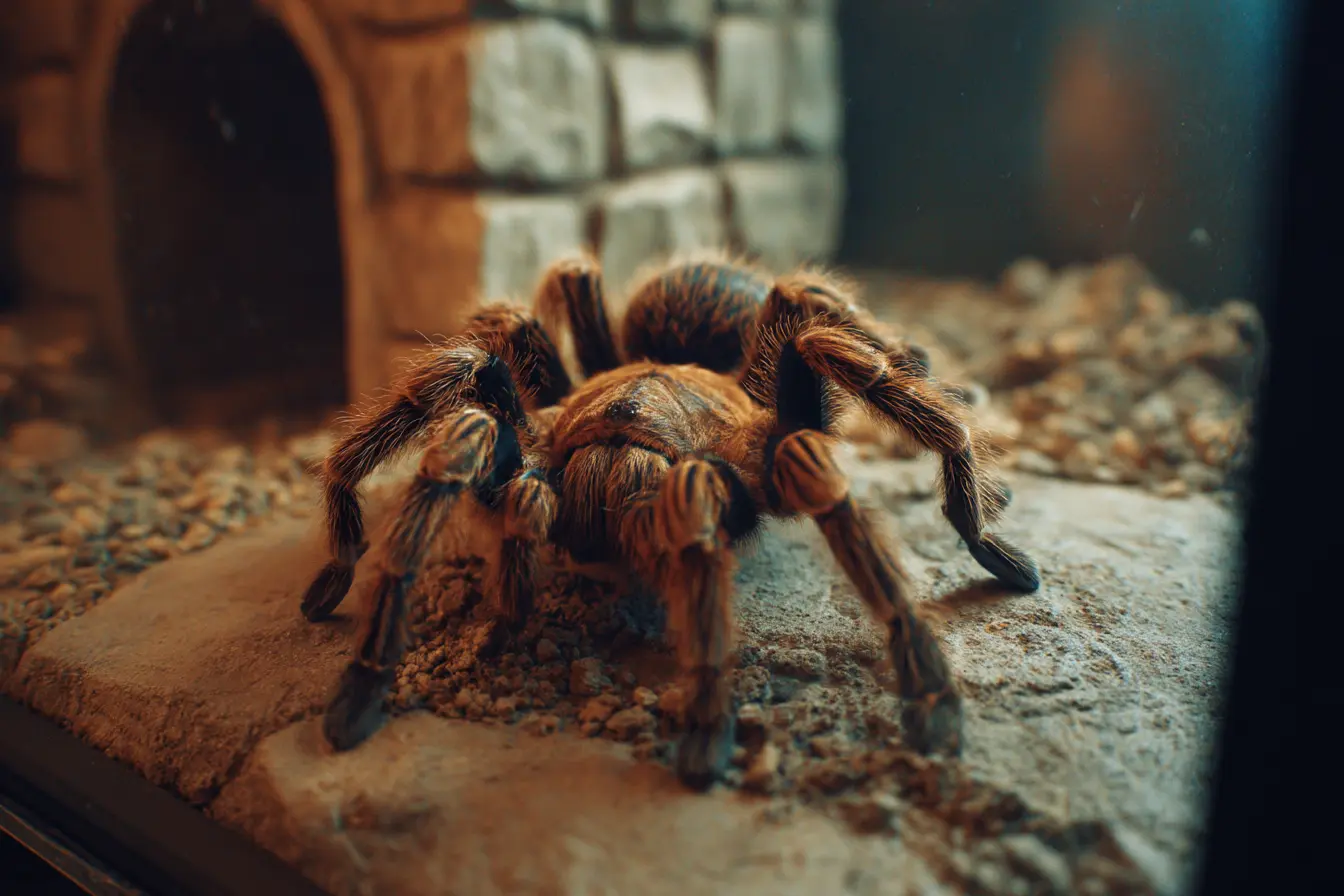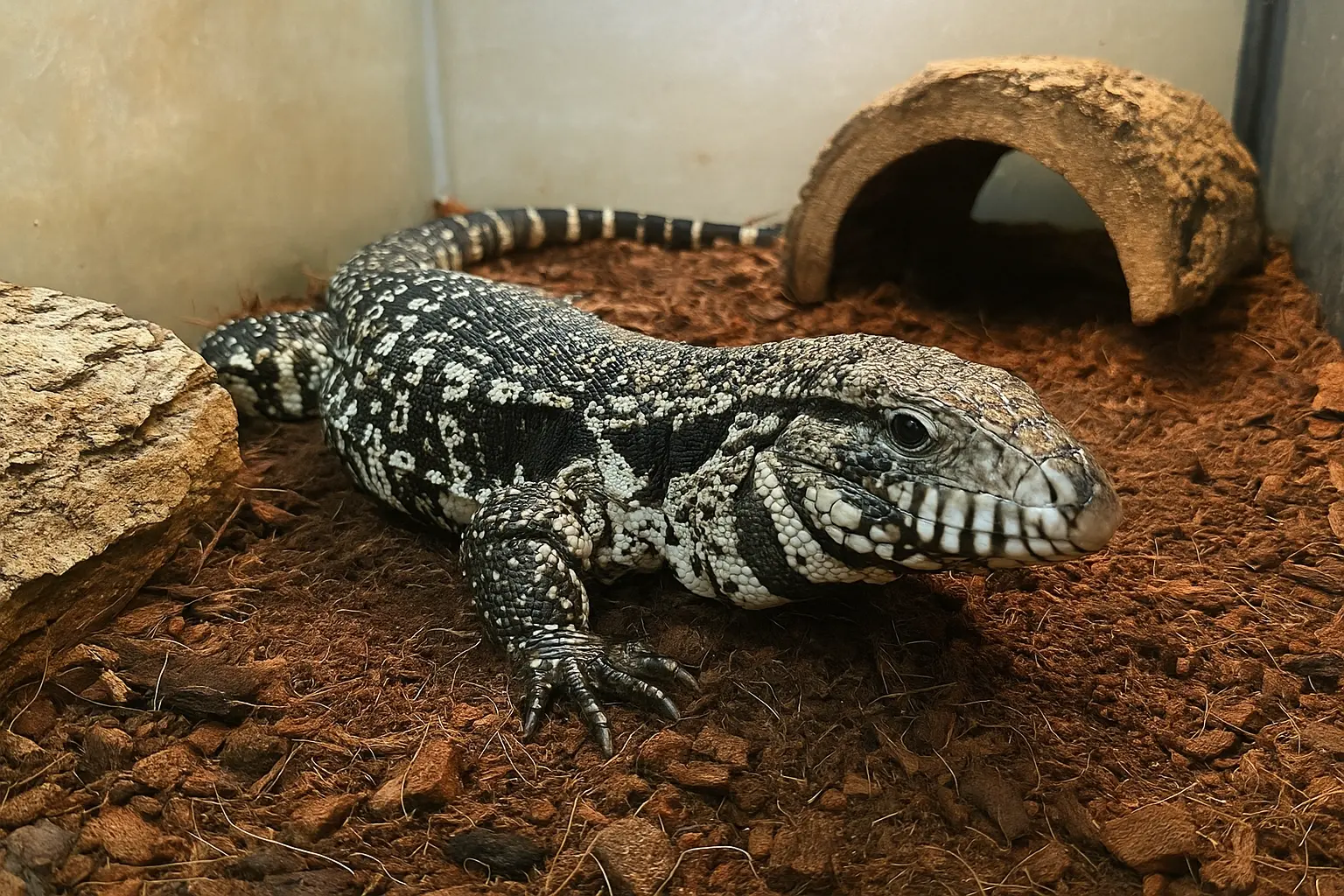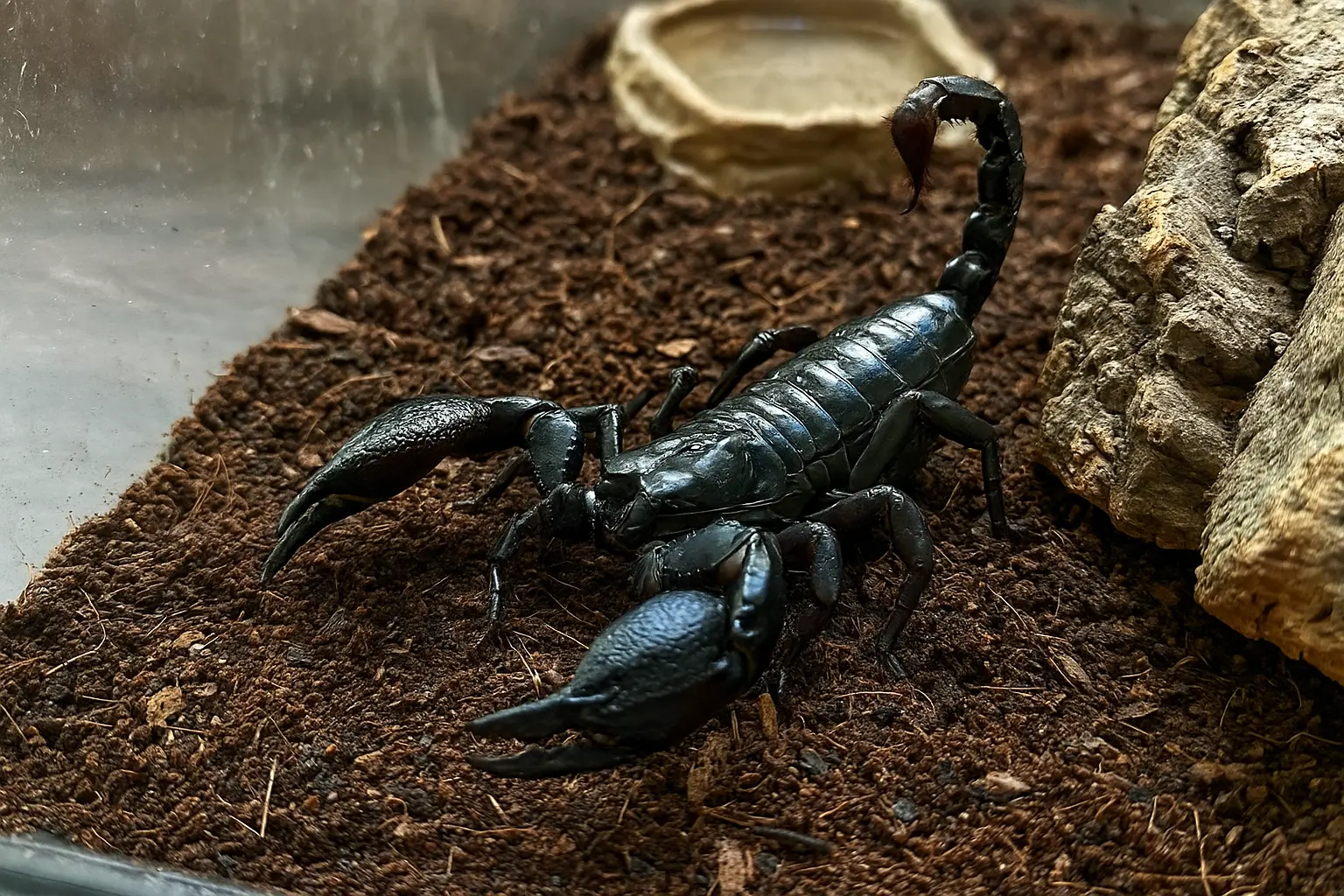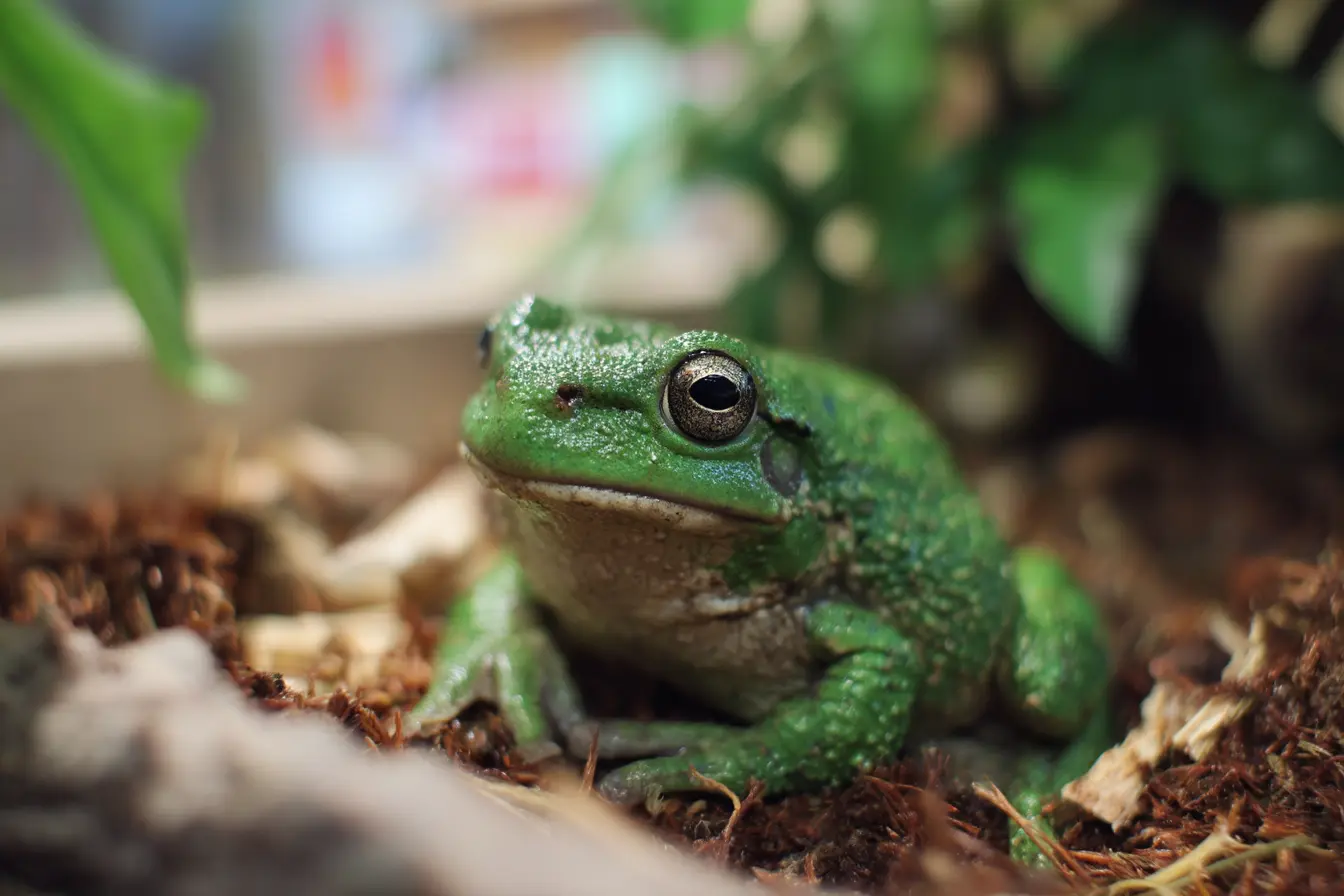
Common Health Issues in Pet Tarantulas and the Importance of Using a Specialist Vet
Tarantulas are fascinating and low-maintenance pets, but their unique needs require careful attention. Despite their hardy reputation, they can suffer from a range of health issues that can threaten their wellbeing if not addressed promptly. Understanding these common health problems and recognising the value of a specialist vet are crucial to keeping your tarantula healthy and thriving.
Common Health Issues in Pet Tarantulas
Dehydration
Dehydration is one of the most common health issues in tarantulas, often caused by inadequate water availability or low humidity levels. Signs of dehydration include a shrivelled abdomen, sluggishness, and a lack of coordination.
Prevention Tip: Maintain appropriate humidity levels for your tarantula's species and provide a shallow water dish at all times. Regularly monitor the enclosure's humidity with a hygrometer.
Moulting Problems
Tarantulas periodically moult as they grow, shedding their old exoskeleton to allow for new growth. Moulting is a vulnerable and stressful process, and complications such as being unable to fully shed the exoskeleton can lead to injury or death.
Prevention Tip: Ensure the enclosure has proper humidity and a safe, undisturbed environment during the moulting process. Avoid handling your tarantula or disturbing the enclosure during this time.
Injuries
Tarantulas are delicate creatures, and falls or improper handling can lead to serious injuries. A ruptured abdomen, for example, is often fatal if not treated immediately.
Prevention Tip: Avoid handling your tarantula unless absolutely necessary, and ensure their enclosure has soft, substrate-lined surfaces to reduce the risk of injury from falls.
Parasites and Pests
Parasites, such as mites, can infest tarantulas if their enclosure is not kept clean. Mites may cause irritation, stress, or even transmit diseases.
Prevention Tip: Keep the enclosure clean, remove uneaten prey promptly, and ensure that any live food is parasite-free.
Infections
Bacterial or fungal infections can develop from injuries or unsanitary conditions. Signs of infection may include discoloured or swollen areas on the tarantula's body and a decline in activity.
Prevention Tip: Maintain a clean enclosure and ensure any injuries are monitored closely. If you suspect an infection, seek veterinary assistance immediately.
Nutritional Deficiencies
A poorly balanced diet can result in nutritional deficiencies that affect your tarantula's overall health. Tarantulas require a diet of live prey, such as crickets, roaches, or mealworms, to meet their nutritional needs.
Prevention Tip: Provide a varied diet of appropriately sized live prey and avoid overfeeding, as obesity can also be an issue in captive tarantulas.
Why You Need a Specialist Vet for Your Tarantula
Many tarantula owners assume that veterinary care isn’t necessary for these exotic pets, but this misconception can lead to preventable health issues. A specialist vet is a vital resource for diagnosing and treating illnesses, as well as for providing expert advice tailored to your tarantula's needs.
Expert Knowledge
Specialist vets have the training and experience to understand the unique anatomy and biology of tarantulas. Unlike general vets, they are equipped to recognise subtle signs of illness and provide appropriate care.
Accurate Diagnosis and Treatment
Tarantulas often hide signs of illness or injury, making it difficult for owners to identify problems. Specialist vets have the tools and expertise to diagnose conditions such as infections, moulting complications, or nutritional deficiencies accurately.
Emergency Care
In emergencies, such as a ruptured abdomen or a stuck moult, a specialist vet can provide life-saving care. Quick and effective treatment can make the difference between recovery and a tragic outcome.
Preventative Guidance
A specialist vet can help you create the ideal conditions for your tarantula's species, including guidance on enclosure setup, diet, and routine care. Preventative advice is invaluable for minimising the risk of common health problems.
How to Find a Specialist Vet for Your Tarantula
Locating a vet with experience in tarantulas can be challenging, but it’s essential to have one available when needed. Here’s how to find the right professional:
-
Search for Exotic Animal Vets: Look for vets who specialise in exotic pets or invertebrates. Many larger cities have clinics with expertise in exotic animal care.
-
Ask for Recommendations: Join online tarantula forums or social media groups to get recommendations from other owners.
-
Check Credentials: Ensure the vet has experience working with tarantulas or other invertebrates. Don’t hesitate to ask about their training and qualifications.
-
Establish a Relationship Early: Schedule a routine check-up even if your tarantula seems healthy. This allows the vet to familiarise themselves with your pet and helps you build a relationship before any emergencies arise.
Conclusion
Tarantulas are unique and captivating pets, but their care requires specialised knowledge and attention. By understanding the common health issues they face and seeking the expertise of a specialist vet, you can provide the best possible care for your tarantula. Preventative care, a clean and well-maintained habitat, and access to a qualified vet will ensure your tarantula lives a long and healthy life.
Don’t wait for a problem to arise—start building a plan for your tarantula’s health today!
Vets near you
Speciality vets
- Aquatics vet specialists
- Birds vet specialists
- Camelids vet specialists
- Cats vet specialists
- Cattle vet specialists
- Deer vet specialists
- Dogs vet specialists
- Equines vet specialists
- Exotic vet specialists
- Goats vet specialists
- Pigs vet specialists
- Poultry vet specialists
- Sheep vet specialists
- Small Mammals vet specialists
- Wild vet specialists
Vet facilities
- Accessible by public transport
- Blood testing
- Car park nearby
- Client car park
- Dentistry
- Diagnostic imaging
- Disabled public access
- Flea and worm treatments
- Microchipping
- Mobile services
- Neutering
- Open at weekends
- Out-of-hours service
- Referral interests
- Referrals only
- Street parking outside
- Toilets available
- Vaccinations



